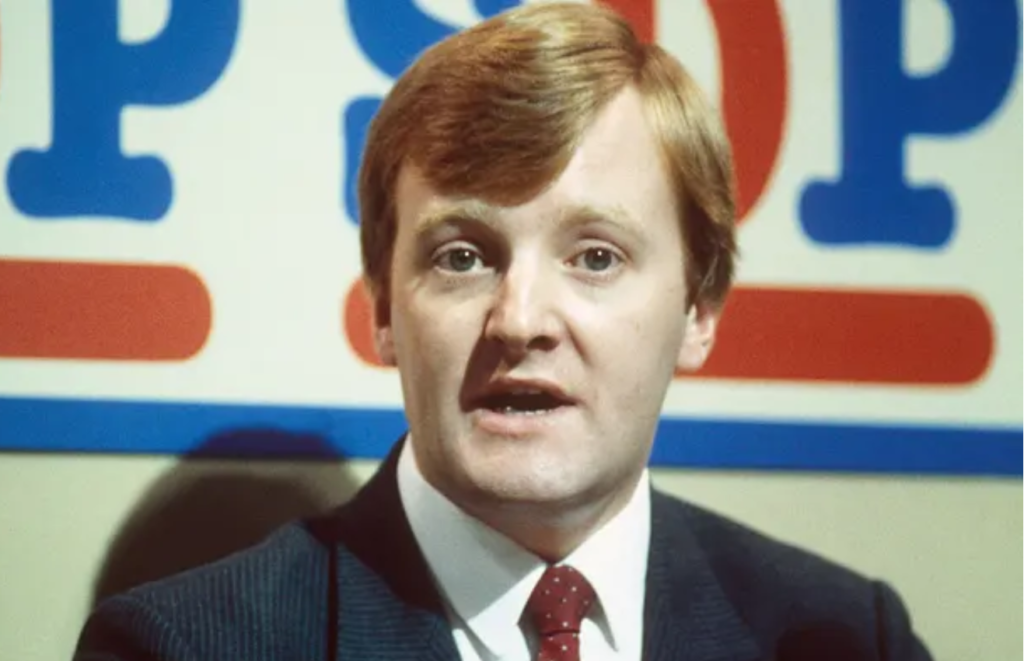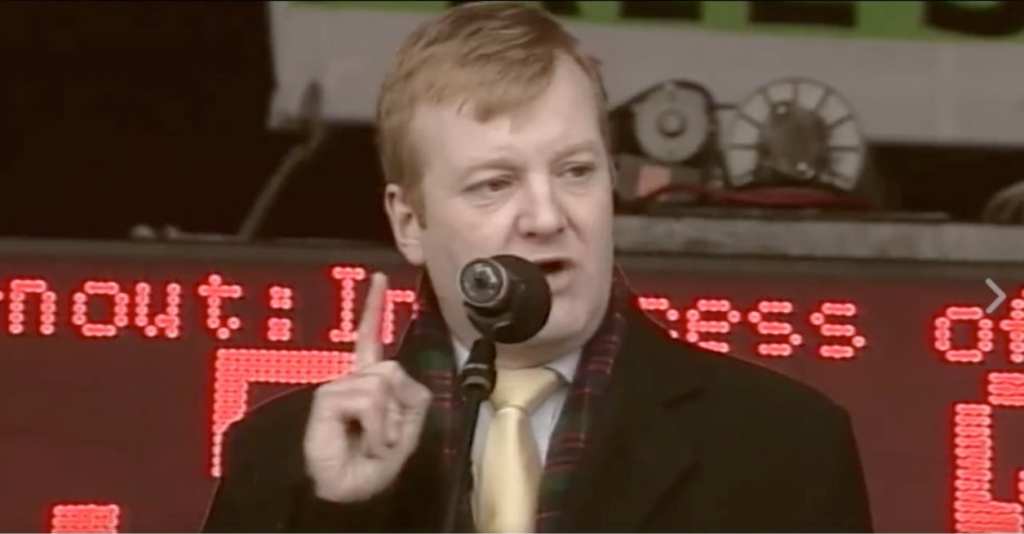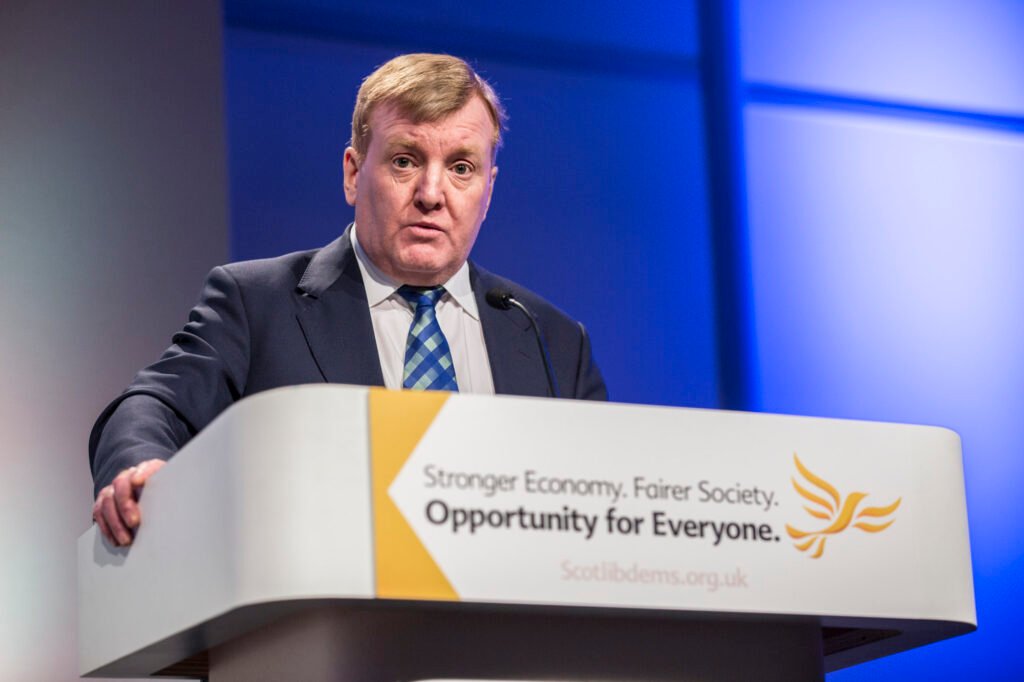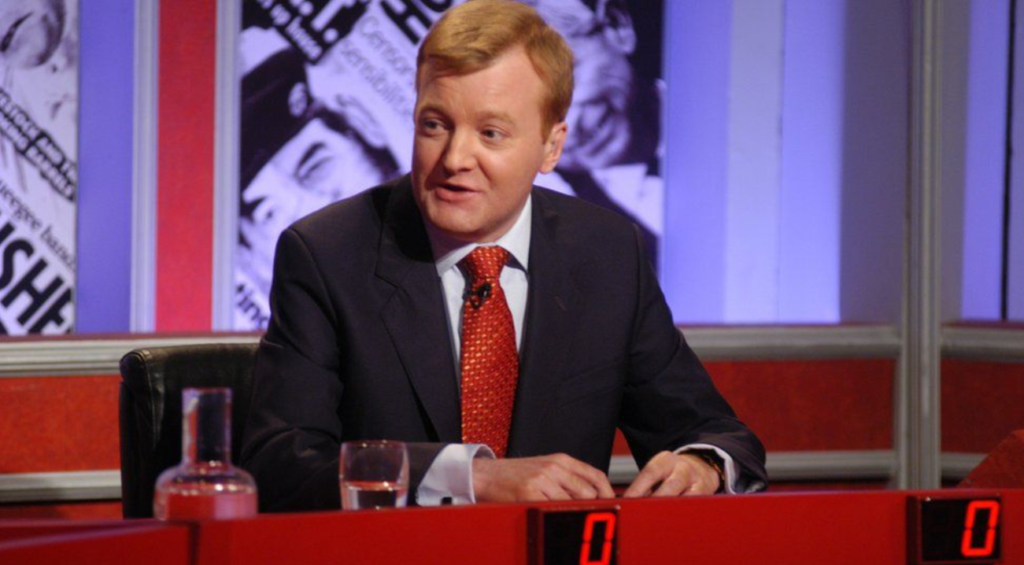In 1983, Charles Kennedy was first elected to Parliament, winning the Ross, Cromarty, and Skye seat for the Social Democratic Party. At the time he was the Baby of the House, the youngest MP in the Commons.
He would hold this seat for three decades, going through multiple boundary changes meaning that by 2005, Kennedy represented Ross, Skye, and Lochaber – the biggest constituency in the United Kingdom, covering 12,000 square kilometres (a sixth of Scotland’s land mass).

In 1987, the amount of SDP members in parliament went from eight to five, with Roy Jenkins amongst those losing their seat. Kennedy would become the first SDP MP to support a merger with the politically-alike Liberal Party, which would commence in 1988. He was vocal in his support for unification, standing up to the opposing David Owen.
He would become President of the Liberal Democrats in 1990, serving until 1994.
In 1999, after serving for over a decade, inaugural Lib Dem leader Paddy Ashdown stepped down. Kennedy would contest, with huge backing from MPs (such as Vince Cable), peers (such as Shirley Williams), and MEPs (such as Nick Clegg); he would be victorious.
In 2001, Kennedy was able to build upon the 46 seats won by Paddy Ashdown in 1997. With the House of Commons Information Office noting the Lib Dems were the only major party to gain seats via by-elections, the party would continue their rise, being the party to win the most seats with a net gain of six.
Kennedy had been a vocal critic of some of New Labour’s most controversial legislation such as the introduction of tuition fees, which he remarked were “one of the most pernicious political acts that has taken place…It means people from lower income backgrounds are discriminated against in going to university and that means the country is poorer as a result.”
In 2003, Kennedy made the stand that would go on to define his political legacy.
In that year, the Blair-led and Conservative-supported Iraq War commenced. The Liberal Democrats became the only major political party to oppose the intervention, with Kennedy a vanguard in the anti-war movement.

At the anti-war Hyde Park rally, the largest mass gathering in UK history when as many as 1.5 million citizens attended, Kennedy exclaimed: “Today, across the world, the people are speaking, and the prime minister and the president must start listening…There is no way, in all conscience, that the Liberal Democrats either could or should support a war. And we will not!”
During the same time Kennedy was making impassioned speeches in the Commons against the war, accusations were rising about his alcoholism, including after not appearing in the House to address a 2004 budget speech when party leader.
Despite his drinking and missing much of the campaign due to the birth of son Donald, Kennedy was still able to lead the Lib Dems to gains in the 2005 election. Able to capitalise on Labour’s unpopularity, the Lib Dems won 62 seats, the most the party (and any third party as a matter of fact) had won since 1923. It is also the best performance the party has ever had under its modern name whilst future prominent Lib Dem figures such as Danny Alexander, Jo Swinson, and Tim Farron were elected.

However, Kennedy’s leadership was far from safe as mounting Lib Dem opposition to his position grew. In a round-robin letter, over a third of all Lib Dem MPs signed a letter opposing Kennedy’s continued tenure as leader. In January 2006, Kennedy not only resigned but announced officially for the first time that he was receiving treatment for a drinking problem.
Two years later, he was appointed president of the pro-EU group European Movement.
In the 2010 election, Kennedy was able to stride to re-election. He would notably oppose the decision of the Liberal Democrats to form a coalition with the Conservatives amid a hung parliament, explaining the election results “drive a strategic coach and horses through the long-nurtured ‘realignment of the centre-left’ to which leaders in the Liberal tradition – this one included – have all subscribed since the Jo Grimond era…Our political compass currently feels confused. And that really encapsulates the reasons why I felt personally unable to vote for this outcome when it was presented to Liberal Democrat parliamentarians.”
During his last tenure, he would propose several liberal measures including supporting UN recognition of Palestine, reducing the voting age to 16, and reforming “the grotesque distortions of the First-Past-The-Post political system.” He was also a pro-union voice in the 2014 Scottish referendum, joining the Better Together campaign.
In the 2015 SNP landslide, Kennedy lost his seat to future SNP leader in the Commons Ian Blackford. In 2010, he was 13,000 ahead of his closes competitor but lost by 5,000 in 2015, losing the seat after over 30 years.
Devastated and heartbroken, he passed away just a month later, aged 55.
Tributes poured in, with former Lib Dem leader Paddy Ashdown remarking that he was “loved way beyond the circles of politics.” Nick Clegg stated: “Charles’s untimely death robs Britain of one of the most gifted politicians of his generation. He was one of the most gentle and unflappable politicians I have ever known. Yet he was immensely courageous, too, not least when he spoke for the country against the invasion of Iraq.”

Ian Hislop lamented: ‘Charles was clever, funny, committed, self-deprecating, generous and very good company. Yes, he had a drink problem, but he had better judgement drunk than a lot of politicians sober,” referring to his drink problems. Kennedy was a common guest on the Hislop-captained Have I Got News For You, on which he became acclaimed. To quote Greg Hurst’s Charles Kennedy: A Tragic Flaw, “broadcasting provided a foil for his quick wit and helped him develop a reputation with the public as a more approachable politician.”
Labour spokesman and strategist Alastair Campbell – a close friend – added: “He spoke fluent human because he had humanity in every vein and every cell.” [1,000 words]
GRIFFIN KAYE.


